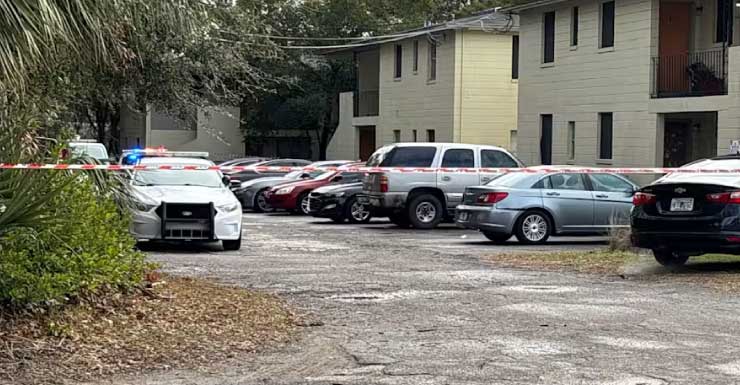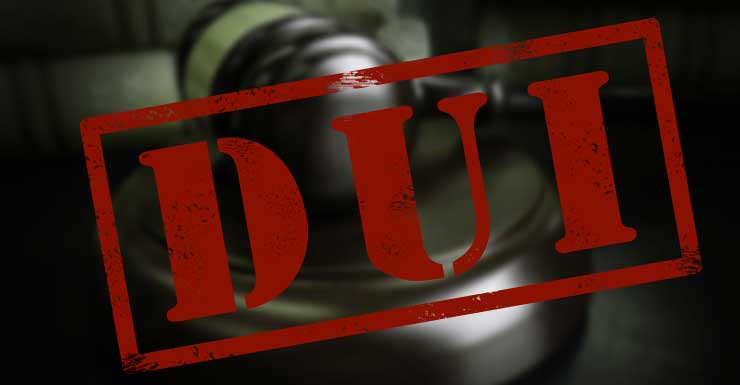18 Fla. L. Weekly Supp. 1020a
Online Reference: FLWSUPP 1809CHES
Insurance — Personal injury protection — Attorney’s fees — Amount — Contingency risk multiplier of 1.5 is appropriate where attorney for medical provider was not able to mitigate risk of nonpayment, and provider’s likelihood of success was more likely than not from outset — No merit to argument that multiplier is not appropriate because provider did not have difficulty obtaining counsel in this case due to existing relationship with attorney — Expert witness fee, costs and prejudgment interest awarded
EDGE FAMILY CHIROPRACTIC, P.A. dba Edge Family Chiropractic a/a/o Tammy Chestnut, Plaintiff, vs. STATE FARM MUTUAL AUTOMOBILE INSURANCE COMPANY, Defendant. County Court, 1st Judicial Circuit in and for Escambia County. Case No. 2010 SC 003061, Division V. May 9, 2011. Pat Kinsey, Judge. Counsel: Robert N. Heath, Jr., Robert N. Heath, P.A., Pensacola, for Plaintiff. James C. Rinaman, III, Jacksonville, for Defendant.
FINAL JUDGMENT FOR COSTS AND ATTORNEYS’ FEES
On April 12, 2011, in open court, the parties appeared through counsel to address the plaintiff’s motion for attorney’s fees and costs. The case is currently on appeal after a jury verdict rendered in plaintiff’s favor on November 8, 2010. Plaintiff filed this PIP case to require defendant to pay for treatment resulting from injuries sustained in a February 20, 2009, motor vehicle collision. Defendant, State Farm, paid their insured’s medical bills for a period of time without incident. However, after a compulsory medical examination, also known as an IME, State Farm informed the plaintiff that they would no longer pay for any chiropractic care. A jury was selected on November 8, 2010, and after a one-day trial, they rendered their verdict for the plaintiff later that same day.
It is undisputed that plaintiff’s attorney is entitled to an award of attorney’s fees and costs, the case having been resolved by jury verdict. The court, having heard the argument of counsel, reviewed the case law presented, argument of counsel and the testimony of the experts, Charles Beall and Arthur Shimek, and reviewed the three volumes of the official clerk’s file, makes the following determinations in accord with Florida Patients Compensation Fund v. Rowe, 472 So.2d 1145 (Fla. 1985), Standard Guaranty Insurance Company v. Quanstrom, 555 So.2d 828 (Fla. 1990), Bell v. U.S.B. Acquisition Co., Inc., 734 So.2d 403 (Fla. 1999) [24 Fla. L. Weekly S220a], Pennsylvania v. Delaware Valley Citizens’ Council for Clean Air et al., 483 U.S. 711 (1987), Progressive Express Insurance Company v. Schultz, 31 FLW D2610 (Fla. 5th DCA 2007) [Editor’s Note: Opinion on Rehearing at 32 Fla. L. Weekly D548b], Progressive v. Schultz, 948 So.2d 1027 (Fla. 5th DCA 2007) [32 Fla. L. Weekly D548b], The Florida Rules of Professional Conduct Rule 4-1.5(b), and Eckhardt v. 424 Hintze Mgt., LLC Case No. 1D07-56 (Fla. 1st DCA December 17, 2007) [32 Fla. L. Weekly D2966a] and Louise Massie v. Progressive Express Insurance Company, 25 So.3rd 584 (Fla. 1st DCA 2009) [34 Fla. L. Weekly D2364b].
This case resulted from an automobile collision which occurred on February 20, 2009. The case ultimately resolved after a jury trial where the plaintiff prevailed receiving a verdict for $632.35. This case involved multiple pre-trial motions and hearings as to compel, for summary disposition, to strike and eventually after the jury verdict, a notice of appeal.
Mr. Heath presented the testimony of Mr. Shimek as to a reasonable hourly rate and a reasonable number of hours. Mr. Shimek has been an attorney for more than 27 years. His highly successful practice is limited to personal injury, wrongful death and related insurance litigation and he was, until he recently withdrew from handling PIP cases, one of the premier PIP attorneys in Northwest Florida achieving excellent results for his clients. He handled PIP cases until he became so discouraged at the poor financial return weighed against the complexity of the cases — exacerbated by the extensive delays in getting paid due to the typically anticipated appellate aspect to most contested PIP cases. Instead, Mr. Shimek has done a considerable amount of research into PIP attorney’s fee issues across primarily the two county area and is generally acknowledged as an expert for that purpose. Until he gave up his PIP practice, he was acknowledged as one of the top PIP attorneys in Northwest Florida.
Plaintiff was represented by Robert Heath. Mr. Heath seeks compensation at $425.00/hour for the stipulated 72.95 reasonable hours expended in succeeding in this jury trial case. The court has personally observed Mr. Heath’s experience, reputation, diligence and ability in representing various clients for more than ten years. Mr. Shimek testified that Mr. Heath has more than thirty years of experience and his reputation in the community is “among the top attorneys in the personal injury area”. Mr Heath is board certified by the Florida Bar as well as the National Board of Trial Advocacy as a Civil Trial Lawyer with more than 100 jury trials. He is also a certified mediator with more than15 years experience. Although Mr. Heath has both criminal and civil trial experience, since 1984 his practice has been primarily civil. Since 1986, his practice has been exclusively civil. His practice has been substantially devoted to PIP cases since 1996. Mr. Heath is a published author on PIP issues and frequently lectures at seminars and appears before the Florida Legislature concerning PIP and related issues. Over the past ten years, Mr. Heath has represented more PIP plaintiffs than any other attorney in this area: probably more than 1,000 PIP cases handled. He is widely acknowledged as the most experienced and effective PIP plaintiff’s attorney in the two-county area. He is one of the few local attorneys in the Escambia/Santa Rosa Bar who regularly handles PIP cases.
Mr. Heath agreed to handle this case knowing well that even if he prevailed at trial, it would more than likely be years before he was paid for his services. Experience has shown that when an insurance provider decides to proceed to trial, it is likely that they will vigorously contest and aggressively pursue all aspects of the very complex PIP law, both from the statutes and ever changing case law perspectives. A contested PIP case is never easy and never runs smoothly or efficiently. They are time consuming, detail driven and demand attention — all with the promise that if the insured prevails, payment will require the patience and determination to persevere for many, many more months and probably years including additional litigation regarding payment of attorney’s fees and costs. Mr. Shimek also testified, and the court agrees, that all PIP litigation is complex litigation; that is, the facts do not necessarily make the case complex, the ever changing case law and statutes make it complex. It is an ever evolving area of the law which requires constant attention. Further adding to the undesirability of PIP cases is “. . . what you have to go through to get paid after prevailing on the underlying case.” Without the anticipation that a multiplier may apply to make the work financially and professionally justifiable, no reasonable, competent attorney in Northwest Florida would agree to take a PIP case.
Mr. Shimek testified that a reasonable rate for Mr. Heath is $450.00/hour, and for his paralegal, $105.00/hour and the court agrees1. This case required extensive litigation including motion practice and a jury trial (and apparently now on the appellate level) and required an attorney with the experience, tenacity and willingness to accept, meet and overcome the challenges presented by the defendant. The jury trial became a “battle of the experts.” This required Mr. Heath to have both legal and medical knowledge in order to present the case in an understandable manner to the jury, and Mr. Heath prevailed. The parties stipulated that a reasonable number of hours for Mr. Heath is 72.95 and for his paralegals is 65.95 hours. The parties further stipulated to costs of $1,291.66 ($200.002 is being contested).
The court also finds credible Mr. Shimek’s testimony that $105.00/hour is reasonable for the services of Mr. Heath’s paralegals. In Escambia and Santa Rosa, it is not unusual to find paralegal billings between $85.00 and $150.00.
The rate Mr. Heath seeks is in the mid-range and his paralegals have experience, training and a reputation for skill and professionalism. For example, Ms. West, for which the parties have stipulated 57.95 hours, has over 20 years experience and is certified.
The court next examined whether or not a multiplier is justified in this case. It is well established that because of the small sums3 involved, litigants may be discouraged if they cannot recover an amount sufficient to cover their loss and attorney’s fees. See Quanstrom at 833-834. Since PIP cases almost always involve a small sum, case law supports the application of a multiplier to attract good and competent attorneys who are willing to accept the risk of non-payment. Mere hourly wages could never fairly compensate for the risk involved where a fee is dependant upon the successful outcome of a case — and payment for costs as well as attorney’s fees typically delayed for in excess of a year, and more frequently, years at a time. The evidence and the record establishes that in this community one could not attract or obtain competent counsel in cases such as this one without a contingency multiplier.
In applying the Quanstrom factors, the court finds that the evidence established Mr. Heath was not able to mitigate the risk of nonpayment in any way other than by litigating this case through jury trial (and apparently now appeal to the circuit court). Because attorneys in general decline to accept PIP cases, this case becomes even more of a risk for the plaintiff. Until recently, there were eight to ten attorneys in the two-county area who would handle PIP cases . . . today there are actually only about three out of more than 750 in the area. Many of those dropped out of the PIP arena because, although multipliers were being awarded at the attorney’s fee hearing, they were being reversed on appeal. After the Massie case, where the multiplier was upheld on appeal to the First DCA, perhaps this trend will begin to reverse.
When evaluating the Quanstrom imposed modification on Rowe to determine the likelihood of success at the onset of the case, the court notes several very important factors. The IME cutoff was generated by a local physician rather than an “out of town” chiropractor who has a limited “patient” practice to support his “IME” generated income. Because this type of case becomes a “battle of the experts” at trial, this greatly diminishes the plaintiff’s ability to attack the opinion behind the “cut off.” The court’s analysis would place the risk at “even” from the onset. However, the court is constrained to rule within the evidence presented by Mr. Shimek (and the defendant’s expert, Charles Beall) who both agree in their presentations to the court that this case was “more likely to succeed than not” which places the multiplier in the 1.0-1.5 range.
Defendant further argues that a multiplier would not be justified in this case because there was no evidence presented that the plaintiff had any difficulty obtaining counsel for this PIP case. The defendant appears to rely on Schultz in arguing that because the plaintiff, in this instance, was able to rely on the existing relationship with Mr. Heath “to obtain competent counsel” by simply making a phone call, there is no justification for a multiplier. However, this would lead to the absurd result that a plaintiff who struggles to find counsel the first time, and then remembers the ultimate answer that works and goes back to that “attorney who helped them before” a second time without struggling through the selection process again, would result in a penalty to the attorney. This is surely not the intent of Schultz. The fact that less than 1% of the 800 or so attorneys in this two-county area regularly handle PIP cases and the fact that Dr. Edge, after initial struggles to find someone to help his patients with their PIP claims, now has a relationship with Mr. Heath, should not penalize Mr. Heath in his compensation. Under the defendant’s interpretation of the Schultz case, Mr. Heath would probably be forced to terminate his relationship with Dr. Edge as he could not expect a multiplier in Dr. Edge’s cases. Since only a few attorneys handle PIP cases and since these attorneys have finite time to spend on cases, they would not accept cases where they know they could not expect a multiplier. Thus the Schultz case, under defendant’s interpretation, would remove those few competent attorneys from the PIP litigation field very quickly — clearly an absurd result which the Fifth DCA could not have intended in their very fact specific case.
The other absurd result which would be an unintended consequence of defendant’s interpretation of Schultz would be to have a two-tiered fee structure for PIP cases. Insureds who suffer injury from an automobile collision and need legal help in getting their PIP benefits for medical care and open the phone book to start calling attorneys and find Mr. Heath, by luck, on their first call would create a case of the first-tier where Mr. Heath would not be entitled to a multiplier. Other insureds, by random calling, would not get to Mr. Heath (or one of the other few PIP attorneys) for many, many calls resulting in a second-tier PIP case where the attorney would be entitled to a multiplier because the attorney was not discovered until the 4th or 5th or more attempt. Surely this is not what the Fifth DCA intended . . . and yet it is a natural consequence of the defendant’s interpretation.
This court finds that the Fifth DCA in Schultz did not intend these consequences. The ultimate issues resolved by Schultz are two-fold: first, recognition of whether or not the insured is able to find competent counsel to help them claim the benefits they are entitled to receive without a multiplier and, two, a fair and reasonable fee to the attorney who, after careful consideration, agrees to help them.
Although treated as “without merit” from the onset by the defendant who elected, after notice, not to pay the benefits, but instead to proceed through extensive discovery and a jury trial, the plaintiff eventually prevailed and all benefits were paid at the jury’s insistence. As a result, although it is clear to the court that this case should probably fall within the “even-chance” category, the court will follow the evidence presented by both experts that it was “more likely than not” from the onset. Therefore, the court awards plaintiff an attorney’s fee of $56,892.75, which is the product of Mr. Heath’s 72.95 hours at $425.00 and 65.95 paralegal hours at $105.00/hour times a 1.5 multiplier.
Therefore, the total due plaintiff for attorney’s fees and costs is $58,384.41.
In addition, plaintiff incurred costs for Mr. Shimek’s services as an expert witness. Mr. Shimek documented five hours of time reviewing the file plus the time attending and testifying at the hearing at a rate of $425.00/hour for a total of $2,125.00. Mr. Shimek’s testimony reflected the amount of time, research, and expertise he brought to the court. The court finds his time is reasonable and a reasonable fee for his services is $2,125.00. See Travieso v. Travieso, 474 So.2d 1184 (Fla. 1985); Stokus v. Phillips, 651 So.2d 1244 (Fla 2d DCA 1995) [20 Fla. L. Weekly D627c].
ORDERED AND ADJUDGED that the total judgment for attorney’s fees, taxable costs, expert witness fee and prejudgment interest shall be $60,509.41 which shall accrue interest at the rate of 6% per annum for which let execution issue.
__________________
1However, even though Mr. Heath has been awarded $450.00 in the past, because Mr. Heath is only seeking $425.00/hour in this case, his hourly rate will be limited to $425.00/hour.
2Mr. Heath seeks $200.00 in costs for renting equipment to present the case at jury trial. The two day rental (use the day before trial to make sure the equipment worked, he knew how to operate it, and prepare the information to be presented via the equipment plus the day of trial) for 2 days at $100.00/day. The court finds this to be a reasonable and necessary charge.
3Here the amount at issue was only $600.00 (plus interest).




